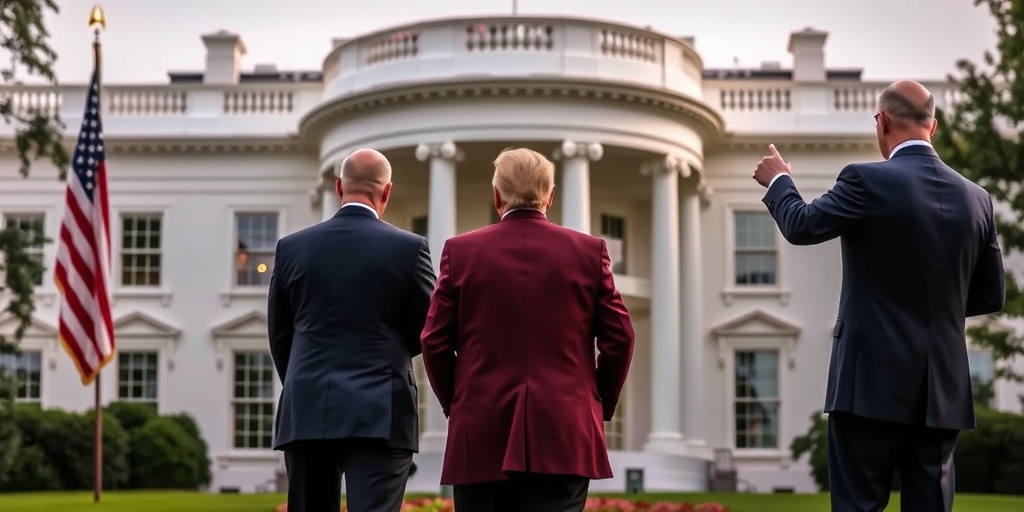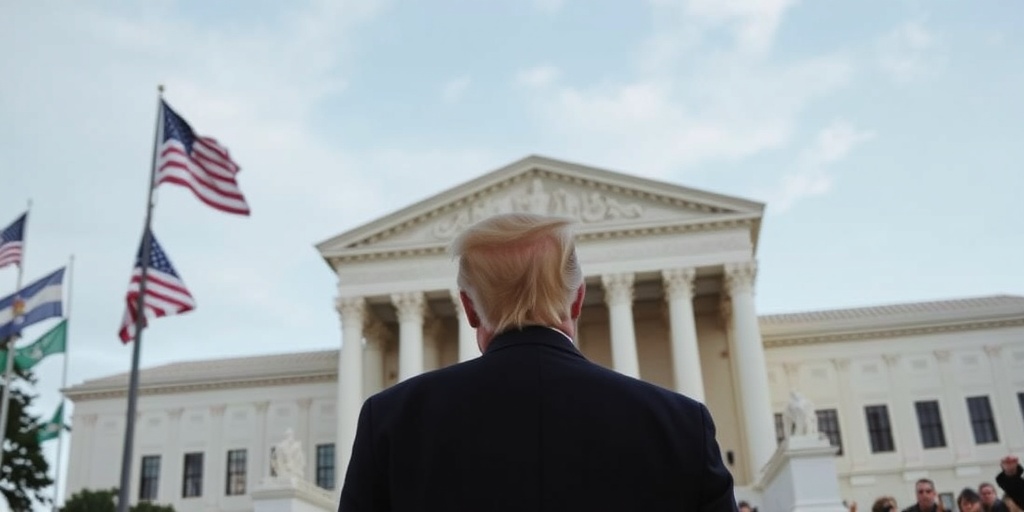Now Reading: Trump’s Vengeful Speech Reveals Personal Grievances
-
01
Trump’s Vengeful Speech Reveals Personal Grievances
Trump’s Vengeful Speech Reveals Personal Grievances
In a striking departure from tradition, former President Donald Trump took the stage at the Great Hall of the Justice Department last week, delivering a vehement speech that centered on his grievances towards the legal system and the individuals involved in prosecuting him. Traditionally, presidents have reserved this esteemed venue for announcing critical anti-crime initiatives or lauding the fundamental tenets of the rule of law. Historical addresses, like those from Bill Clinton discussing his crime bill in 1993 or George W. Bush honoring Justice Department employees in 2001, emphasized a commitment to justice and public service.
However, Trump’s address presented a starkly different narrative. Instead of praising the rule of law, he launched a scathing attack on the very prosecutors and legal figures who challenged his conduct, indicating a vision of justice characterized by personal vendettas rather than institutional integrity. “These are people that are bad people, really bad people,” Trump claimed during his speech, asserting that these individuals attempted to transform the United States into a “corrupt communist and third-world country.”
Among those targeted in Trump’s tirade were prominent legal figures such as Marc Elias, a lawyer known for battling Trump’s efforts to overturn the results of the 2020 election, and Mark F. Pomerantz, a prosecutor involved in the early stages of a criminal case against Trump that ultimately led to his conviction on multiple felony charges. Trump’s anger escalated as he pivoted to attack Alvin L. Bragg, the Manhattan district attorney, along with Jack Smith, the special counsel who indicted him on various criminal charges, including mishandling classified materials and alleged deception at the end of his presidency.
Unpacking his past grievances, Trump also expressed pride in firing former FBI Director James B. Comey, who initiated an investigation into connections between Russia and Trump’s 2016 campaign. “It was a great honor for me to fire — I will tell you this, a great honor to fire James Comey, a great, great honor,” he proclaimed, celebrating the decision as a pivotal moment during his administration.
Furthermore, Trump identified additional adversaries, including Norm Eisen, the lawyer who oversaw Trump’s first impeachment proceedings concerning allegations of coercing Ukraine to investigate Joe Biden. Following the address, Eisen responded via email, asserting that Trump’s remarks reflected frustration over the legal defeats he has faced. Eisen emphasized that such attacks would not deter him or his colleagues from continuing to hold Trump accountable.
Trump’s speech was marked by a lack of evidence to support his claims against those he accused. The legal battles faced by individuals such as Eisen, Elias, and others stemmed primarily from their efforts to ensure accountability for Trump’s actions, rather than any supposed misconduct on their part.
During the over-hour-long address, Trump not only criticized his enemies but also praised those he deemed allies. He lauded Judge Aileen M. Cannon, who had dismissed a case related to classified documents against him, crediting her with being “the absolute model of what a judge should be,” while downplaying the substantial evidence presented by federal prosecutors.
In an amalgamation of unfounded assertions and distorted facts, Trump accused the justice system of being weaponized against him, asserting that a corrupt faction within the government had undermined trust and goodwill built over generations. His rhetoric underscored a continued animosity towards federal prosecutors, revealing intentions to exact retribution against them.
As evidence of his retributive ambitions, Trump detailed actions he has already taken, including stripping security clearances from Smith and Bragg, while also criticizing senior FBI officials for misallocating resources during investigations. Hours after the address, the White House announced an executive order suspending security clearances for individuals associated with the law firm where Pomerantz previously worked.
Throughout his speech, Trump hinted at future punitive measures against his adversaries, albeit without specificity. He emphasized the importance of exposing what he termed the “egregious crimes and severe misconduct” of those who have opposed him. “It’s going to be legendary,” Trump announced, framing his response as a mission to restore justice in America and prevent alleged abuses from recurring.
In summary, Trump’s remarks at the Justice Department epitomize a radical shift in how a former president approaches issues of accountability and justice, moving from traditional reverence for the rule of law to a combative posture aimed at personal retribution. The fallout from his statements raises questions about the enduring implications for the integrity of the justice system and the principles that govern it.
Stay Informed With the Latest & Most Important News
Previous Post
Next Post
-
 01New technology breakthrough has everyone talking right now
01New technology breakthrough has everyone talking right now -
 02Unbelievable life hack everyone needs to try today
02Unbelievable life hack everyone needs to try today -
 03Fascinating discovery found buried deep beneath the ocean
03Fascinating discovery found buried deep beneath the ocean -
 04Man invents genius device that solves everyday problems
04Man invents genius device that solves everyday problems -
 05Shocking discovery that changes what we know forever
05Shocking discovery that changes what we know forever -
 06Internet goes wild over celebrity’s unexpected fashion choice
06Internet goes wild over celebrity’s unexpected fashion choice -
 07Rare animal sighting stuns scientists and wildlife lovers
07Rare animal sighting stuns scientists and wildlife lovers


















